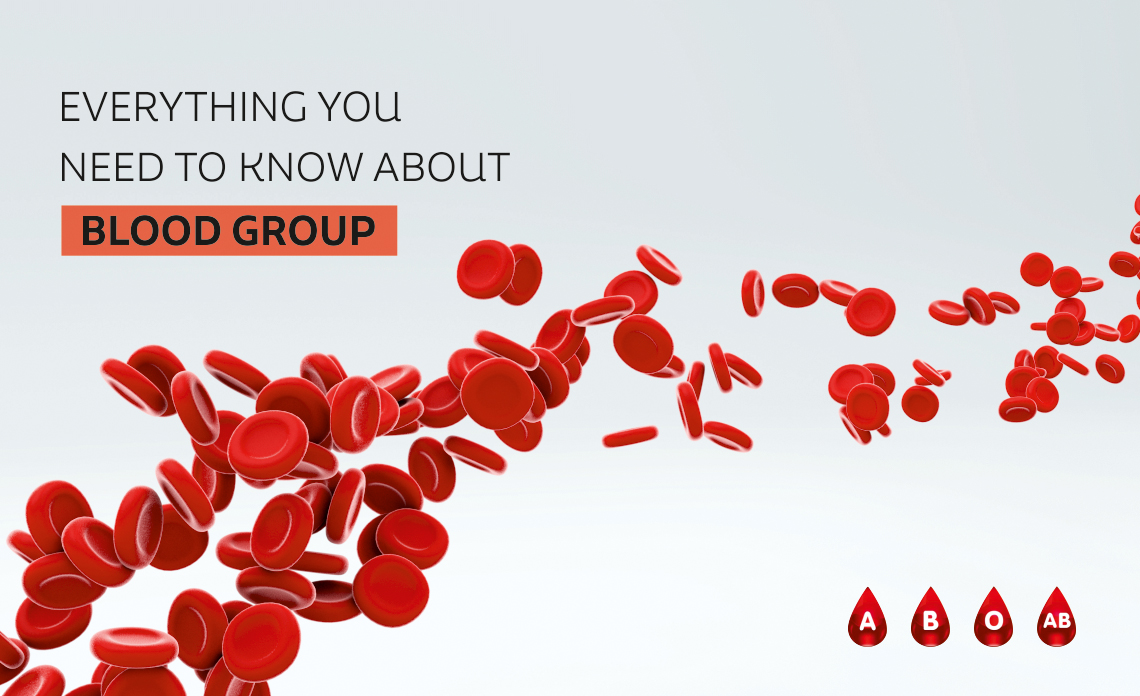|
|

Blood is an incredibly crucial
component of your Body. Blood type, as similar to eye color and facial
structure, is inherited from your parents. A blood type system may be a
collection of 1 or more antigens that are under the control of one gene or a
cluster of closely linked homologous genes.
Human blood groups are mainly
classified into A, B, AB, and O types
based on the types of antigens found on the surface of red blood cells. These antigens
are often proteins, carbohydrates, glycoproteins, or glycolipids, depending on
the blood type system. Every blood type has distinctive characteristics. A simple
blood group test can determine your blood group type.
When was the blood group discovered?
ABO and Rh are generally the most commonly used blood groups because
they define the blood type. In the year
1900, at the University of Vienna, Karl Landsteiner discovered the reason
behind the success of some blood transfusions and why others were proving
deadly. He discovered the ABO blood group system (the most commonly used) by
combining the red cells and serum of each of his staff in 1901. Other blood groups
were also discovered around 1927.
The Rh blood group system was discovered by Karl Landsteiner and A.S.
Weiner in 1940. The Rh factor is a type of protein that can be found on the
surface of red blood cells. If red blood cells contain this protein, it is Rh-positive,
if not then, Rh-negative.
ABO Blood Group System.
A and B antigens are either present or
absent on the surface of red blood cells. If the A antigen is present on an
individual's red blood cell, their blood type is recognized as A. If B is
present, then B type. For O neither of the antigens are present. Some may have
both A and B antigen presence, their blood type is recognized as AB. So, an
individual's blood type can be determined by the presence or absence of these
antigens.
Types of Blood Groups as per ABO blood
group system
Rh Blood Group System
The Rh
antigens are found on non-glycosylated transmembrane proteins that are integral
to the RBC membrane. Around 45 antigens are recognized within the Rh system.
The common ones include D, C, c, E, and e (there is not any "d"
antigen). The antigens are encoded by two different but closely connected
groups, RHD and RHCE. The RhAG and Rh proteins seem to function as
ammonia/ammonium transporters.
Each group within the ABO blood group the system can be either RhD positive or RhD negative, so in total there are 8
blood groups.
Your health and your blood group
The main use
and when knowing your blood type will be most needed is during an emergency.
Your doctor will need to arrange for compatible blood if you need a blood
transfusion following an accident, surgery, or delivery. If a wrong type of
blood is injected in your body, it can clump dangerously inside your veins,
proving fatal. Yours and the donor's blood will be appropriately tested before
transfusion and the medical team present will ensure that you receive
compatible blood.
The surface
of each red blood corpuscle (RBC) is coated with antigens (sugars and proteins)
that is integrally linked to membrane proteins or lipids. The importance of
these antigens during blood transfusion and platelets/tissue/organ
transplantation lies in their capability to incite an immune response,
potentially causing a transfusion reaction or organ/tissue rejection. Around
Forty-three blood type systems are recognized by the International Society for
transfusion.
Even
expectant mothers blood types are checked early in pregnancy to protect from
any mishaps. If the mother's blood type or Rh factor is not the same as her
baby's may receive an immunoglobulin shot, which helps prevent antibody
production to keep mom and baby safe.
Which blood group is a universal
donor?
Depending on the antigens and Rh factor in your blood, it can be a very
rare or most common blood type. In India, the most common blood type is
O-positive and the rarest is AB-negative. Those with O positive blood can only
receive transfusions from O positive or O negative blood types, while O negative
donors are often called 'universal donors ' because all blood groups can receive
their blood.
Can Blood groups change?
Usually, your
blood type will remain the same all of your life. However, it has been observed
that in some cases, like bone marrow transplants or getting certain types of
cancers or infections, the blood types have changed. Though is the rarest of the
rare case.
How is the Blood group determined?
The test done
to determine your blood group is called Blood Typing. A blood sample is taken
by a needle placed in a vein in the arm or by a finger-prick (for children) or
heel-prick (for infants). This blood is first mixed with three different
reagents including either of the three different antibodies, A, B, or Rh
antibodies. Agglutination determines A or B type. Then the presence or absence
of Rh antibodies is tested. Your blood type is determined by combining these
two results.
Research and
studies will keep evolving, but it's essential to know your specific blood type
and use credible medical resources to stay on top of your health as it gives
deeper insight into your genetic blueprint.
Blood group is more than just a
specification; it has the capability to save your own or other's life when
needed.
Do you know your Blood Group?
If not, find out by means of a simple blood test at a clinical laboratory. Unipath specialty laboratory provides home sample collection for your convenience and a range of preventive health check-ups.
Recent Posts